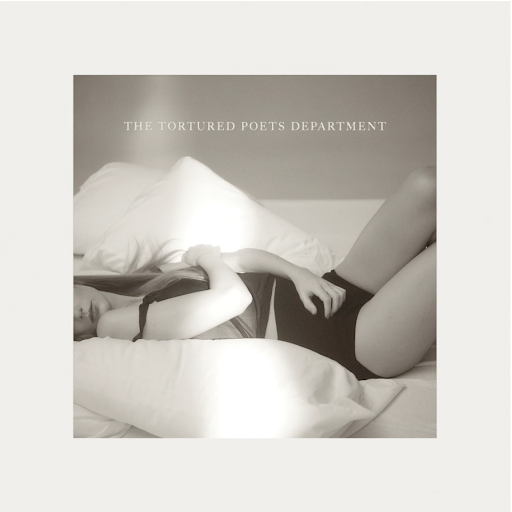
When Taylor Swift announced her 11th studio album, “The Tortured Poets Department” on Feb. 4, she was on stage accepting her 14th Grammy. Met with backlash and the resuming of hate, “TTPD” came out just in time to silence the critics yet again.
The only difference about their voices this time? She doesn’t care about them anymore.
“The Tortured Poet’s Department” was released at midnight on April 19, with promises of a music video for the first track with Post Malone, “Fortnight,” debuting at 8 p.m. the next day.
In true Swift fashion, 15 extra songs — making this a “double album” with 31 tracks — were released two hours after the initial release. Incorporating sound from albums ranging from “Reputation” to “folklore,” Jack Antonoff and Aaron Dessner, alongside Swift, produced a sonically diverse album.
From western range in “Fresh Out The Slammer” and “I Can Fix Him (No Really I Can)” to ominous instrumentals in “Who’s Afraid of Little Old Me?,” Swift samples the best parts of her previous album’s sounds.
Swift’s romantic life has been nothing but public for the last year, but before this, she lived in the shadows with her former partner, Joe Alwyn. After the news of their breakup, many assumed that the album would center around its shocking end.
However, there appears to be more references on the album to Matty Healy, lead singer of The 1975, whom Swift dated for a mere few months in summer 2023.
Demonstrating that a short relationship can be just as crushing as a six year one, Swift doesn’t waver in exposing what really went down with Healy.
The most obvious tracks pointing to Healy are “The Smallest Man Who Ever Lived” and “But Daddy I Love Him.” Poking fun at Healy’s concert uniform, calling it a “Jehovah’s Witness suit,” Swift is unafraid to expose the bratty nature of a pill-seeking poser.
“So Long London” is one of Swift’s most heartbreaking songs on the album, reaching the same level of devastation as her previous ballads “All Too Well,” “Dear John” and “Would’ve, Could’ve, Should’ve.”
Alluding to her previous partner, Joe Alwyn, Swift offers some insight into how the relationship failed with the lines “I died on the altar waiting for the proof, you sacrificed us to the gods of your bluest days.” Referencing a previous bonus track, “You’re Losing Me,” from “Midnights,” Swift seems to admit that throughout her long relationship, marriage was never on the table.
In the track “Peter,” the artist references Peter Pan as a nod to her previous song “Cardigan.” Juxtaposing the lines “Peter losing Wendy” and “you’ll come back to me” from her previous work, she sings “Said you were gonna grow up, then you were gonna come find me.” Alas, these are just “Promises oceans deep, but never to keep.”
However, contrary to what many people may say, the singer doesn’t only excel by writing tales of her exes. Similarly to her previous albums “folklore” and “evermore,” Swift elicits story-telling as a mechanism for her prose in later tracks “Clara Bow,” “Cassandra” and “Robin.” Melodic and haunting, the second half of the album shifts from heartbreak and chaos to poetic prose of stories from long ago.
Songs like “So High School” are a breath of fresh youthful air in the drowning pool of sad prose. Along with “The Alchemy,” Swift may be referencing her relationship with Kansas City Chiefs football player Travis Kelce due to the on-the-nose lyrics “You know how to ball, I know Aristotle.” Though not heavy with songs of him that listeners can interpret, the ones present are full of wide-eyed devotion.
Ending with “The Manuscript,” Swift is looking back on the years of heartbreak and ahead to what could have been, singing “Looking backwards might be the only way to move forward.” Detailing all of the songs on her album as a manuscript, she is releasing her pain to relish only the memories.
In her most raw and real album yet, the singer demonstrates the enormous strides she has made in all her years releasing music. Reminiscing only to march forcefully ahead, Taylor Swift is done hiding.









